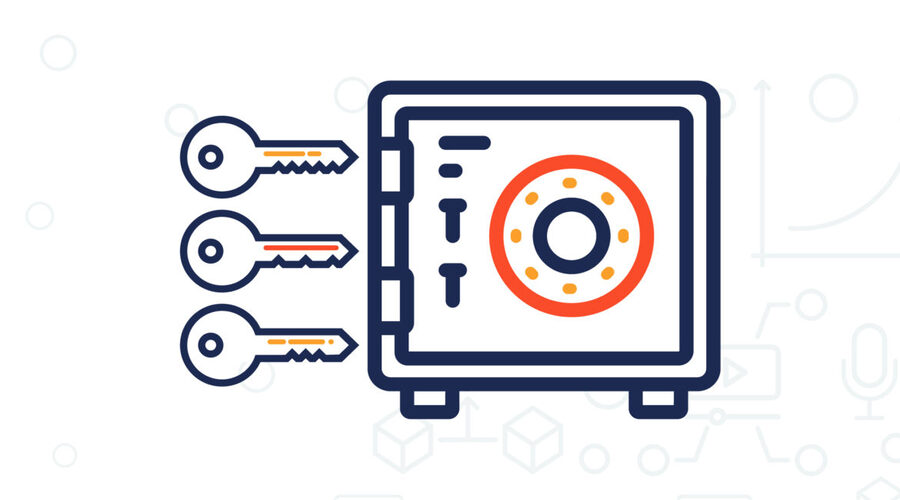

Cryptocurrencies are becoming increasingly popular, with more and more people investing in them. However, the rise of digital currencies has led to an increase in cybercrime, and the need for strong security measures has become paramount. One such measure is the use of multi-signature wallets. In this article, we will explore the role of multi-signature wallets in crypto security and why they are important.
What are Multi-Signature Wallets?
A multi-signature wallet is a type of digital wallet that requires more than one signature to authorize a transaction. Instead of just one private key, a multi-signature wallet requires multiple private keys to initiate a transaction. This makes it significantly more difficult for hackers to steal funds as they would need to access multiple keys, which are held by different individuals or entities.
How do Multi-Signature Wallets Work?
Multi-signature wallets are created using complex algorithms and cryptographic protocols. They can be set up to require a specific number of signatures before a transaction can be authorized. For example, a wallet can be set up to require two out of three signatures to authorize a transaction. This means that two of the three individuals or entities holding the private keys must sign off on the transaction before it can be processed.
Why are Multi-Signature Wallets Important for Crypto Security?
Multi-signature wallets are important for crypto security because they significantly reduce the risk of funds being stolen. With a single-signature wallet, if a hacker gains access to the private key, they can easily steal all the funds in the wallet. However, with a multi-signature wallet, the hacker would need to gain access to multiple private keys, which is significantly more difficult.
Advantages of Multi-Signature Wallets


There are several advantages to using multi-signature wallets:
- Increased Security: As mentioned earlier, multi-signature wallets significantly reduce the risk of funds being stolen.
- Accountability: With multi-signature wallets, there is a higher level of accountability as multiple individuals or entities hold the private keys. This means that no one person can initiate a transaction without the approval of others.
- Flexibility: Multi-signature wallets can be set up to require a specific number of signatures before a transaction can be authorized. This means that they can be tailored to meet the needs of different organizations or individuals.
Risks Associated with Multi-Signature Wallets
While multi-signature wallets are generally considered to be more secure than single-signature wallets, they are not without their risks. Some of the risks associated with multi-signature wallets include:
- Human Error: Multi-signature wallets require multiple individuals to sign off on a transaction, which increases the risk of human error.
- Complexity: Multi-signature wallets can be complex to set up and use, which can lead to errors or confusion.
- Dependence on Others: With multi-signature wallets, individuals or entities are dependent on others to authorize transactions. This can lead to delays or other issues if one of the signers is unavailable.
The Importance of Private Keys
Multi-signature wallets rely on private keys to authorize transactions. Private keys are long strings of letters and numbers that are unique to each wallet. They are essentially the digital equivalent of a physical key, and they are what allows users to access and manage their cryptocurrency. It is important to keep private keys secure and to never share them with anyone else.
Types of Multi-Signature Wallets
There are several different types of multi-signature wallets, each with its own unique features and benefits. Some examples include hardware wallets, software wallets, and paper wallets. It is important to understand the differences between these types of wallets and to choose the one that best meets your needs.
Multi-Signature Wallets for Businesses
Multi-signature wallets are especially important for businesses that deal with large amounts of cryptocurrency. By requiring multiple signatures to authorize transactions, businesses can ensure that no single individual has too much control over their funds. This can help to prevent fraud and other types of financial crime.
Multi-Signature Wallets and Decentralized Finance (DeFi)
Multi-signature wallets are also becoming increasingly important in the world of decentralized finance (DeFi). DeFi refers to a system of financial applications that are built on blockchain technology. Many DeFi applications require users to interact with smart contracts, which are self-executing contracts that are programmed to automatically execute certain actions. Multi-signature wallets can be used to help secure these smart contracts and to prevent unauthorized access.
Future Developments in Multi-Signature Wallet Technology
As the world of cryptocurrency continues to evolve, so too will the technology behind multi-signature wallets. Some experts predict that future developments could include the integration of biometric authentication, such as fingerprint or facial recognition, into multi-signature wallets. Other developments could include the use of artificial intelligence and machine learning to help identify potential security threats.
Multi-Signature Wallets vs. Single-Signature Wallets
Single-signature wallets, also known as regular wallets, only require one private key to authorize transactions. While they are simpler to use, they are also more vulnerable to cyber attacks. Multi-signature wallets, on the other hand, require multiple signatures to authorize transactions, making them more secure. However, they can also be more complex to use.
How to Set Up a Multi-Signature Wallet
Setting up a multi-signature wallet requires a few extra steps compared to setting up a regular wallet. The exact process will vary depending on the type of wallet you are using, but in general, you will need to generate multiple private keys and assign them to different signers. You will also need to set the threshold for how many signatures are required to authorize a transaction.
Multi-Signature Wallets for Personal Use
Multi-signature wallets are not just for businesses or high-net-worth individuals. They can also be useful for anyone who wants to ensure the security of their cryptocurrency holdings. For example, if you are holding a significant amount of cryptocurrency, you may want to consider using a multi-signature wallet to protect your funds from cyber attacks.
Multi-Signature Wallets for Crowdfunding
Multi-signature wallets can also be useful for crowdfunding campaigns. In a crowdfunding campaign, multiple people may be contributing funds to a single wallet. By using a multi-signature wallet, the campaign organizers can ensure that funds are only released when a certain number of contributors have signed off on a transaction. This can help to prevent fraud and ensure that the funds are being used for their intended purpose.
Potential Risks of Multi-Signature Wallets
While multi-signature wallets are generally considered to be more secure than regular wallets, they are not without their risks. For example, if one of the signers loses their private key, it can cause delays or even prevent transactions from being authorized. It is important to have a contingency plan in place in case of such an event.
Multi-Signature Wallets and Trust
Multi-signature wallets can help to build trust in the world of cryptocurrency. By requiring multiple signatures to authorize transactions, they can help to prevent fraud and other types of financial crime. This can help to build confidence in the cryptocurrency market and encourage more people to invest in digital assets.
Multi-Signature Wallets and Smart Contracts
Smart contracts are self-executing contracts with the terms of the agreement between buyer and seller being directly written into lines of code. Multi-signature wallets can be used to secure smart contracts by requiring multiple signatures to authorize transactions. This can help to prevent unauthorized changes to the contract and ensure that funds are only released when the terms of the contract have been met.
Multi-Signature Wallets and Escrow Services
Multi-signature wallets can also be used in escrow services, where a third party holds funds on behalf of two parties until certain conditions are met. By using a multi-signature wallet, the third party can ensure that the funds are only released when all parties have signed off on the transaction.
Multi-Signature Wallets for Decentralized Autonomous Organizations (DAOs)
A decentralized autonomous organization (DAO) is an organization that is run by rules encoded as computer programs called smart contracts. Multi-signature wallets can be used to secure the funds of a DAO by requiring multiple signatures to authorize transactions. This can help to prevent unauthorized access to the funds and ensure that the organization is run in a transparent and democratic manner.
Multi-Signature Wallets for Family or Business Partnerships
Multi-signature wallets can be useful for family or business partnerships where multiple parties need to access and manage the same funds. By using a multi-signature wallet, each party can hold their own private key and transactions can only be authorized when a certain number of signatures have been obtained.
Multi-Signature Wallets and Regulations
As the cryptocurrency market continues to evolve, there is likely to be increased regulation around the use of digital assets. Multi-signature wallets can help to comply with these regulations by providing an extra layer of security and accountability.
Multi-Signature Wallet Providers
There are several multi-signature wallet providers available on the market today. Some popular options include BitGo, Casa, and Ledger Vault. It is important to choose a reputable provider and to research the features and fees associated with each provider before making a decision.
Conclusion
Overall, multi-signature wallets are an important tool for anyone who wants to ensure the security of their cryptocurrency holdings. They can be used in a variety of contexts, from personal use to business partnerships to DAOs. As the cryptocurrency market continues to evolve, multi-signature wallets will likely become even more important, and new use cases and applications will continue to emerge.


I have been featured in numerous publications, both online and offline, and am a regular speaker at industry events. I am also the founder of Crypto University, an online educational platform that helps people learn about cryptocurrencies and blockchain technology. In addition to my writing and teaching career, I am also an active investor in the cryptocurrency space. I have made investments in some of the leading projects in the space, and my portfolio has outperformed the market by a wide margin.
